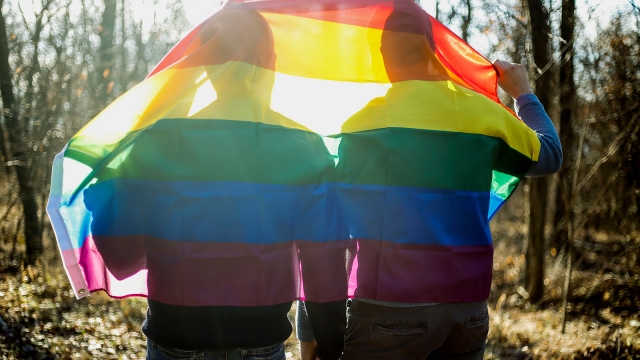We Must Address Violence Targeting LGBTQ Communities of Color

The recent horrific attack on Jussie Smollett has sparked a nationwide conversation about the epidemic of violence that disproportionately targets Black people, LGBTQ people and religious minorities — and those living at the intersections of multiple identities. While it is encouraging that people are actively engaging in this critical dialogue, this is not an issue that began with the attack on Jussie Smollett and it is a discussion that is long overdue. We need look no further than recent headlines to see that LGBTQ communities of color are too often under attack.
Yesterday in Memphis, Keloni Grand, a Black transgender high school student, said that her life was threatened after school by a group of students. The teens followed her when she tried to leave campus, shouting racist, homophobic and transphobic slurs and even spitting on her, according to FOX 13.
And just one week ago, Candice Elease Pinky, a trans woman living in Houston, was chased around a gas station parking lot and shot at from close range in broad daylight, according to media reports. The attack was caught on surveillance footage, but the suspect remains at large.
This attack comes less than a month after Dana Martin, a Black transgender woman, was fatally shot in Montgomery, Alabama. Reports stated that she was found in a roadside ditch in her vehicle and pronounced dead at the scene.
Last year, advocates tracked at least 26 deaths of transgender people in the U.S. due to fatal violence. The majority of those killed were Black trans women. While the details of these tragic crimes differ, it is clear that fatal violence disproportionately affects transgender women of color, who comprise 80 percent of all anti-transgender homicides.
In early January, openly gay Puerto Rican rap artist Kevin Fret was fatally shot in San Juan, shining a national spotlight on a growing tide of violence in Puerto Rico. According to reports, no suspects have been identified and the investigation is ongoing. In an interview with the New York Times, writer and advocate Samy Nemir Olivares said that the artist represented a symbol of hope for other LGBTQ Puerto Ricans who faced bullying and harassment for their identities, calling Fret’s work and openness “an act of resistance.”
These victims and far too many others were attacked by acquaintances, partners and strangers, some of whom have been arrested and charged, while others have yet to be identified. Some of these cases involve clear anti-LGBTQ and racial bias. In others, the details are still tragically unclear.
FBI hate crimes statistics released last year revealed a disturbing increase of 17 percent in overall reported hate crimes from the previous year. These numbers reflect a five percent increase in reporting of hate crimes motivated by sexual orientation bias and a startling 16 percent increase in anti-Black hate crimes.
To confront this alarming epidemic of violence, we must explicitly name racism’s impact on this country and the ways that intersecting oppressions deprive LGBTQ people of color of their fundamental rights to safely and authentically live, love and thrive. We must confront these barriers and work to lift up the voices of advocates challenging systems of power and oppression every day.
You Might Like
